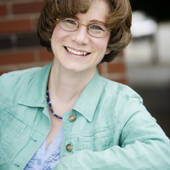"If you're an irredeemable jerk..." is just one pithy statement in Debbie Stanley's Ethical Pitfalls for Professional Organizers, 2019 First Digital Edition (location 1015, paragraph 3, and WOW, do I not get digital publishing citations!). I've been hunting this book FOREVER, no luck for a strongly-preferred print copy and I'd given up hope when a colleague studying for the CPO exam pointed me to this newfangled cyberstuff. Ethical Pitfalls is a foundational reference in the Organizing world.
Stanley draws on a voluminous range of sources, from mental health counseling best practices to potential laws within a municipality, to write this text. It's a guide for Professional Organizers on how to conduct themselves with an intention of maintaining high ethical standards. I was thrilled to discover that she and I share a minority(?) opinion that Organizing needs to become a licensed profession, subject to regulatory oversight similar to the oversight given mental health counseling, as an adjunct to the guidelines currently in place for those Organizers who are dedicated enough to this profession to take the voluntary path of joining professional societies, acquiring education, etc. I fervently believe such oversight would have multiple benefits for this vocation, from weeding out unscrupulous providers, to generating a legal framework for both client and provider complaints, to enhancing provider credibility.
It's terrifying to realize that ethical behavior requires consistent, if possible constant, forethought. On the other hand, it can become habit, and Stanley's book provides tools for us to support that goal. Equally important, she provides a framework for assessing possible actions when our newfound habit leads us to question a situation. She's even going to get Organizers to laugh - when someone frames dilemmas as "Maybe-Bad" and "Definitely-Bad," harkening back to elementary school, the teaching is gentle. She gave me pause - I think of myself as an honest person, someone who "tries to do the right thing." Stanley's reminder that "the right thing" is heavily dependent on context was an excellent prompt to wonder if my "right thing" can be become just a teensy bit self-righteous. And a self-righteous me can get prickly. Sigh.
I'm quoting her from location 222, paragraph one (I'm still not sure I'm doing that right...) because even if I somehow fail to acquire another ounce of ethical acumen from her effort, I will treasure her statement about valuing diversity.
"Sociologists teach us that ethnocentrism (a preference for and comfort with people who look and act like us) ad even cultural encapsulation (obliviousness to what life is like outside our own culture) are natural. We're born with these tendencies. However, in a progressive society, it behooves us to overcome them and it falls to the majority or non-oppressed groups to eliminate the barriers between themselves and people of minority status. Society functions at a higher level when white people learn to be comfortable with people of color, when straights stop discriminating against gays, when Christians develop tolerance for Jews and Muslims (who are minorities in the U.S. but not elsewhere in the world) when people who can walk create access for people in wheelchairs, and so on. As an Organizer, if you experience diversity among prospective clients but, somehow, those who become actual clients are all just like you, you might be making discriminatory choices."
Take on as multi-cultural, multi-dimensional, a clientele as you possibly can, no matter what your job. You'll be enthralled by what you learn.



Comments(1)